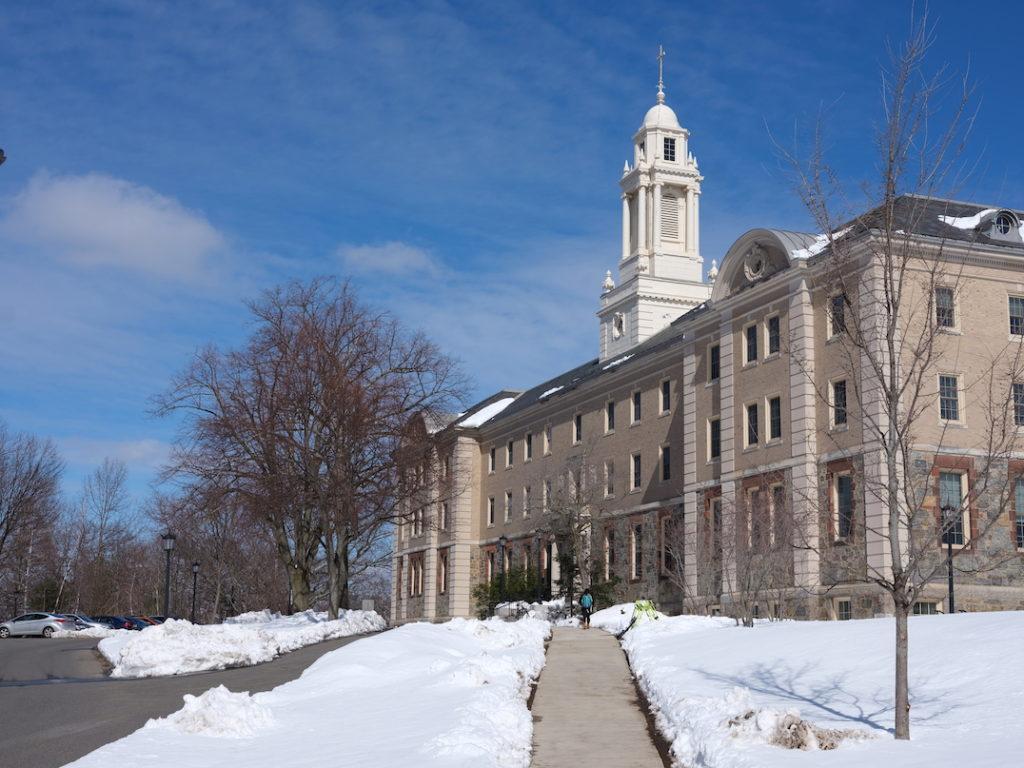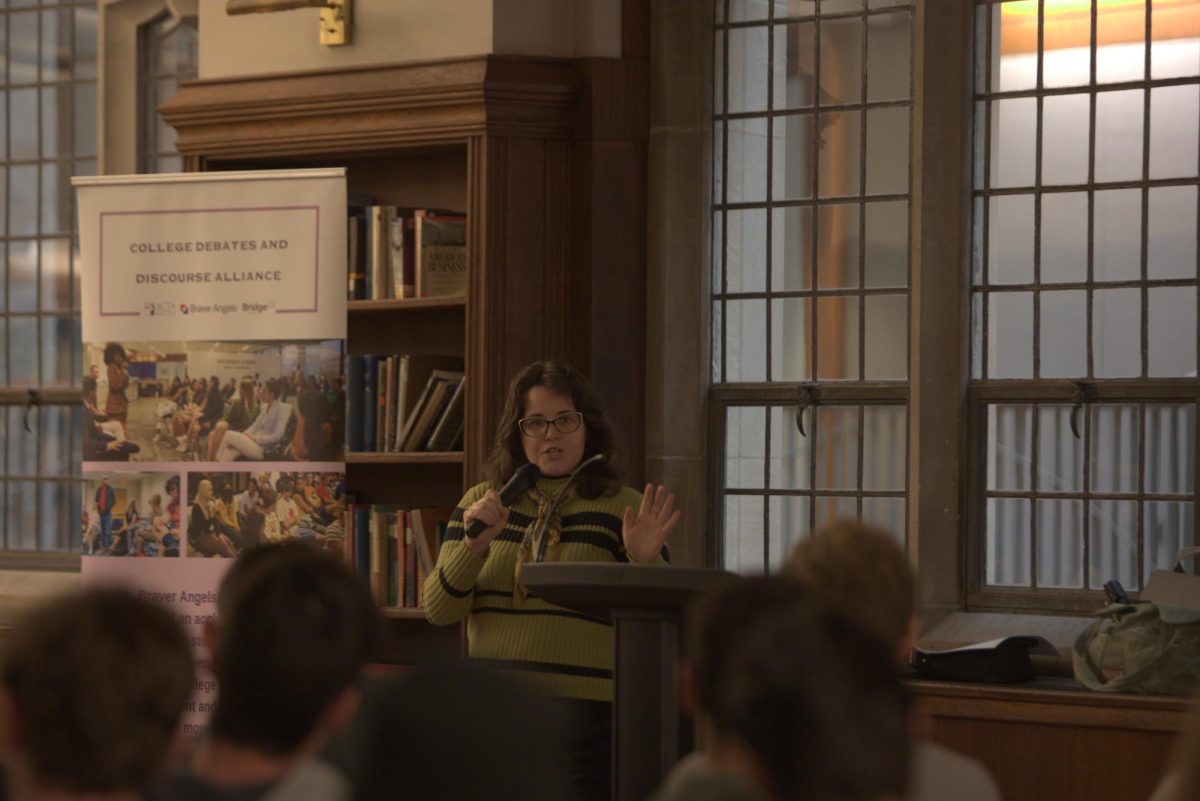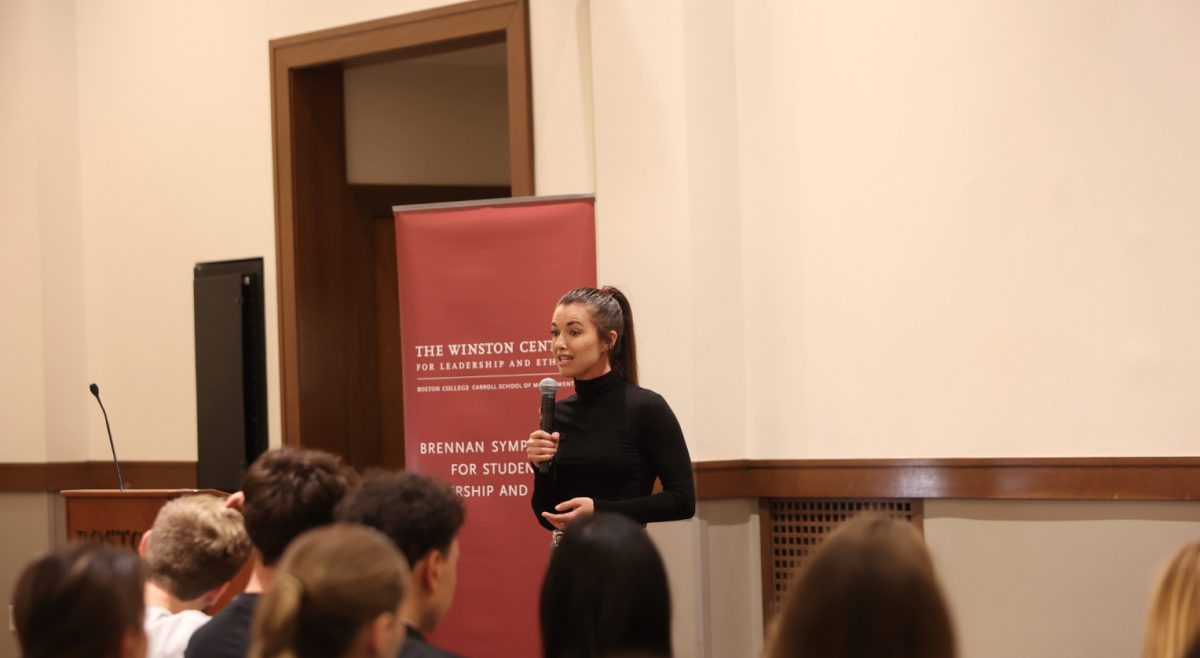The Ignatian Society invited Rev. Pat Conroy, S.J., to Boston College on Wednesday to talk about Jesuit spirituality and the role it plays in his life. Conroy has served as the 60th chaplain of the House of Representatives since 2011, when he was nominated by then-Speaker of the House John Boehner.
Conroy began by striking a friendly tone, cracking jokes as he asked the audience about themselves. His talk highlighted his sense of humility, as he reflected on the amazing experiences he’s had and occasionally celebrated his achievements through self-deprecating humor.
He walked the audience through the past eight years, revisiting prominent events in his tenure, such as the shooting of Representative Steve Scalise during practice for the annual congressional baseball game in 2017. Conroy soon appeared in major papers across the country leading members of Congress in prayer at the game, a fact he marveled at.
“No accomplishment of mine explains this,” Conroy said. “That’s part of my talk. No accomplishment of mine explains this, but people know who I am.”
Conroy is perhaps most famous for a 2018 incident in which former Speaker Paul Ryan asked him resign for unknown reasons. He did submit a letter of resignation but soon retracted that resignation. Conroy briefly delved into that incident at the outset of his talk, saying that the speaker had no power to fire him, but he preferred to stay away from the realm of politics.
Conroy then addressed the issue of separation of church and state, saying that he is allowed to serve as House chaplain because he offers prayers to God rather than addressing the House. In particular, he noted an event where he was sued for denying a “secular humanist” from giving a speech directly to Congress, as he felt it would have been a breach of the separation of church and state.
“Nobody addresses Congress,” Conroy said. “Now this is a technicality, but when the President of the United States comes for the State of the Union, he’s addressing Congress, but at the invitation of the speaker… ‘Dear God of mercy, I thank you for giving us another day.’ So I could not give permission for a secular humanist to give a rah rah fervorino to the members of Congress. I don’t have the power to do that.”
Conroy talked about some highlights from his time on Capitol Hill, including praying at a ceremony awarding the Congressional Gold Medal—the highest award the United States can award—to Japanese Americans who petitioned the government to let them out of internment camps and fight in World War II. As the 442nd infantry regiment, they fought in Europe and became the most decorated military unit in U.S. history.
Conroy also mentioned his experiences meeting Neil Armstrong, former Vice President Joe Biden, former President George W. Bush, the Dalai Lama, and Pope Francis, offering humorous accounts of their meetings. He said that the extent of his conversation with the Dalai Lama was the two complaining about various joint pains. In his brief encounter with Pope Francis, he told of how he mentioned that he was a Jesuit as well, to which Pope Francis replied, “Oh, you have the illness, too?”
“We now have a pope from the Southern Hemisphere,” Conroy said. “Christ the servant, Christ the poor, Christ the vulnerable. And this is the cultural shift that we are struggling with right now in my humble opinion. … So pay attention, it’s really something.”
Conroy’s plan as a student was to eventually become a senator from Washington State, which is why he attended Claremont College and Gonzaga Law School. It was at Gonzaga, though, that he met the Jesuits and decided that he wanted to pursue priesthood.
“After one year of law school, I joined the Jesuits and put on the last suit I would ever wear,” Conroy said in a reference to Men in Black. “From the moment I knew, I knew. I’ve never struggled with the notion that I was actually called to be a Jesuit.”
Throughout his talk, Conroy stressed the three elements that got him to where he is: poverty, chastity, and obedience. In his first assignment, he served on an American Indian reservation, which he determined to be an incredibly tough challenge. He also mentioned that, although he’s been tempted to leave priesthood for a woman before, he never doubted that God called him to serve.
Conroy said that he was chosen as chaplain, thanks to a search committee formed by Boehner and then-Minority Leader Nancy Pelosi, which was directed to search for “a Jesuit, if possible.” At the time, he was a ninth grade teacher at an Oregon high school and was looking to move on from adolescent teaching. By chance, his provincial then told him to apply for the open position, and he “obeyed.”
“So that’s how that happened,” Conroy said. “Poverty, chastity, but especially obedience.”
Featured Image by Sam Zhai / For The Heights













